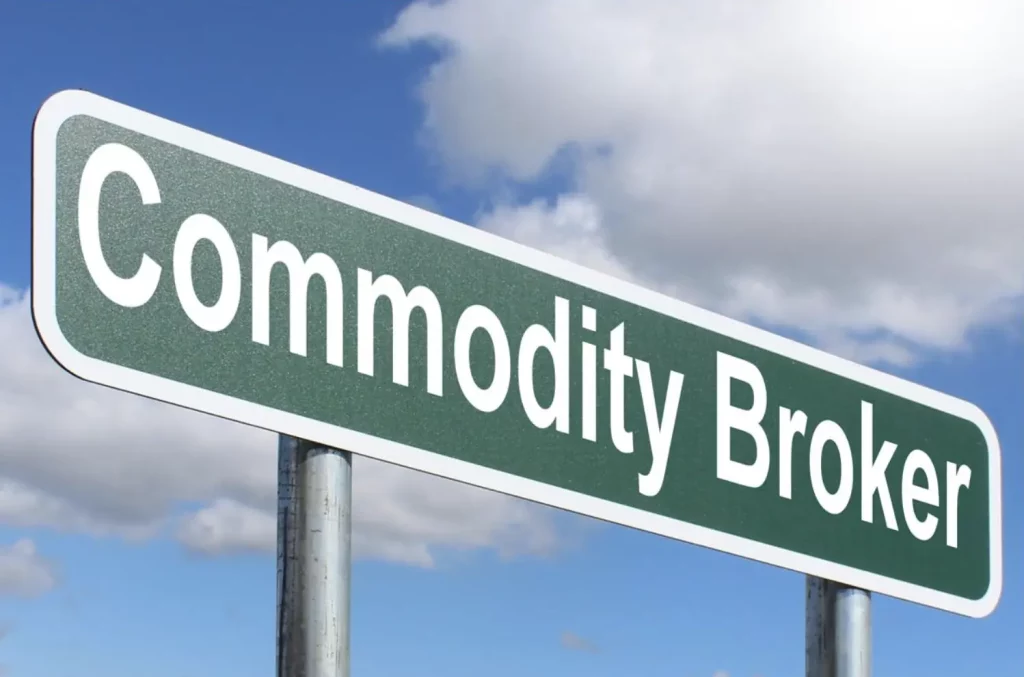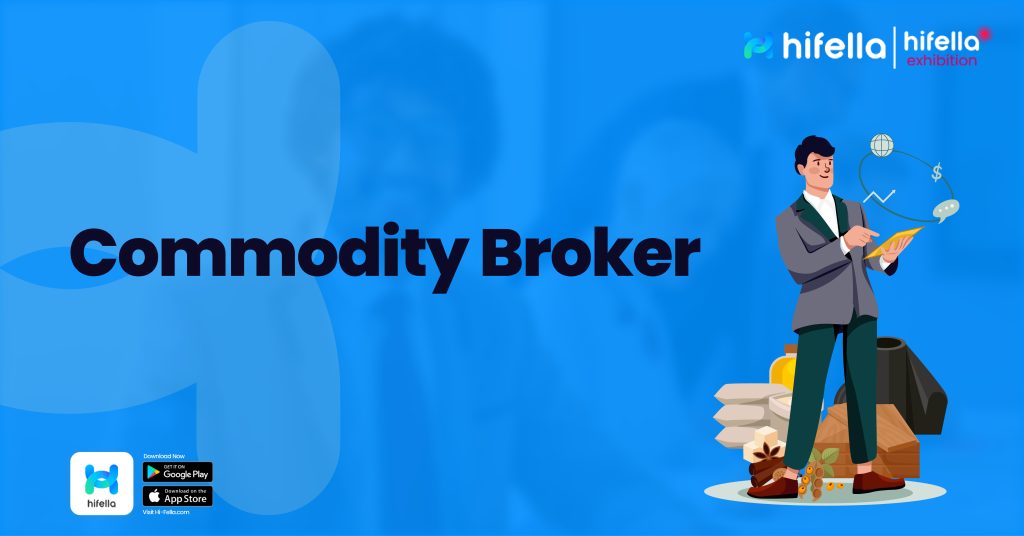Commodity trading is a complex and dynamic field, requiring a deep understanding of global markets, supply and demand, and economic indicators. For those looking to enter this market, a commodity broker is an essential partner.
These professionals provide the expertise and resources necessary to navigate the commodities market successfully, whether you’re trading oil, gold, agriculture, or metals.
In this comprehensive guide, we’ll explore what commodity brokers do, how they add value to your trading, the criteria for choosing a reliable broker, and the costs involved. We’ll also look at the regulatory environment that governs these brokers and common pitfalls to avoid
What is a Commodity Broker?

Source: WikiFX
A commodity broker is a licensed professional or firm that facilitates the buying and selling of commodity contracts on behalf of traders and investors. Commodities include raw materials like oil, gold, natural gas, agricultural products, and metals.
Brokers serve as intermediaries between buyers and sellers, ensuring that transactions are executed efficiently and at the best possible price.
Types of Commodity Brokers
- Full-Service Brokers
Offer personalized advice, research, and trading services, catering to clients who need more guidance. - Discount Brokers
Provide basic services like order execution at a lower cost, ideal for experienced traders who require minimal assistance.
The Role of a Commodity Broker in Trading

Source: The Balance
Commodity brokers play a multifaceted role in the trading process, providing more than just a platform for transactions. Here’s a closer look at their key responsibilities:
1. Market Analysis and Insights
Brokers monitor global markets and analyze economic indicators to offer clients insights into potential trading opportunities. They can help you understand market trends, price movements, and the factors influencing the commodities you’re interested in.
2. Order Execution
When you decide to buy or sell a commodity, the broker executes the trade on your behalf. They ensure that your orders are processed quickly and accurately, which is crucial in fast-moving markets where prices can change rapidly.
3. Risk Management
Commodity brokers can help you manage risk through various strategies, such as hedging. Hedging involves taking a position in a futures contract to offset potential losses in another investment. This is particularly important in commodities, where prices can be highly volatile.
4. Access to Global Markets
Brokers provide access to various commodity exchanges worldwide, enabling you to trade a diverse range of commodities. This access allows you to diversify your portfolio and take advantage of opportunities in different markets.
How to Choose a Reliable Commodity Broker
Selecting the right commodity broker is critical to your success as a trader. Here are key factors to consider:
1. Reputation and Experience
Research the broker’s history, client reviews, and industry reputation. An experienced broker with a solid track record is more likely to offer reliable services and advice.
2. Regulatory Compliance
Ensure the broker is regulated by a recognized authority, such as the Commodity Futures Trading Commission (CFTC) in the U.S. or similar bodies in other countries. Regulation ensures that the broker adheres to strict standards, protecting your investments.
3. Fees and Commission Structure
Understand the broker’s fee structure, including transaction fees, account maintenance fees, and any other charges. Compare these with other brokers to ensure you’re getting competitive rates.
4. Trading Platform and Tools
Evaluate the broker’s trading platform. It should be user-friendly, reliable, and equipped with the tools you need, such as real-time data, charting tools, and analytical resources. A good platform can significantly enhance your trading experience.
5. Customer Support
Assess the quality of customer support. Prompt and knowledgeable assistance is essential, especially during volatile market conditions or when technical issues arise.
Advantages of Using a Commodity Broker
Working with a commodity broker offers several benefits that can enhance your trading experience:
1. Expert Guidance
Brokers bring expertise and in-depth knowledge of the commodities market. They can provide valuable advice, helping you make informed decisions and avoid common mistakes.
2. Efficient Execution
Brokers have access to advanced trading platforms and market data, ensuring that your trades are executed swiftly and at the best possible price.
3. Access to Research and Resources
Many brokers offer clients access to market research, analysis, and educational resources. This information can help you stay informed about market trends and develop better trading strategies.
4. Leverage Opportunities
Brokers often offer leverage, allowing you to control larger positions with a smaller amount of capital. While leverage can increase potential profits, it also amplifies risk, so it’s important to use it wisely.
Understanding the Fees and Commissions Charged by Brokers
Commodity brokers charge fees for their services, which can vary depending on the level of service provided. Understanding these fees is crucial to managing your trading costs.
Types of Fees
- Transaction Fees
Typically charged per trade, these can be a flat fee or a percentage of the trade value.
- Account Maintenance Fees
Some brokers charge a fee for maintaining your account, which may include access to certain tools or services.
- Advisory Fees
If your broker provides personalized advice or portfolio management, you may be charged an advisory fee.
How Fees Impact Your Profits
Fees can significantly impact your overall profitability, especially if you’re trading frequently or in large volumes. It’s important to factor in all potential costs when planning your trades and to choose a broker whose fees align with your trading style and budget.
The Regulatory Environment for Commodity Brokers

Source: Barnes & Thornburg
The commodities market is highly regulated to protect investors and ensure fair trading practices. Understanding the regulatory environment is essential when choosing a broker.
Key Regulatory Bodies
- Commodity Futures Trading Commission (CFTC)
Oversees the commodities markets in the U.S., ensuring transparency and protecting market participants. - National Futures Association (NFA)
A self-regulatory organization that ensures brokers adhere to industry standards and ethical practices. - International Regulators
Brokers operating in other countries are typically regulated by local authorities, such as the Financial Conduct Authority (FCA) in the UK or the Australian Securities and Investments Commission (ASIC) in Australia.
Why Regulation Matters
Regulation provides a safety net for traders, ensuring that brokers operate with integrity and transparency. Working with a regulated broker reduces the risk of fraud and increases the likelihood that your funds are protected.
Common Mistakes to Avoid When Working with a Broker
To maximize your success in commodities trading, it’s important to avoid these common mistakes:
1. Overlooking the Importance of Regulation
Trading with an unregulated broker can expose you to significant risks, including fraud and financial loss. Always verify that your broker is properly licensed and regulated.
2. Ignoring the Fee Structure
Failing to fully understand your broker’s fees can lead to unexpected costs that erode your profits. Always review the fee structure carefully before opening an account.
3. Over-Leveraging
While leverage can increase potential returns, it also amplifies losses. Use leverage cautiously and ensure you understand the risks involved.
4. Lack of Research
Choosing a broker without conducting thorough research can result in a poor fit for your trading needs. Take the time to compare different brokers, read reviews, and test their platforms before committing.
Making the Most of Your Commodities Trading Experience
Commodity brokers are essential partners in the world of commodities trading, offering expertise, resources, and access to global markets.
By choosing a reliable broker, understanding their fees, and being aware of the regulatory environment, you can trade with confidence and success.
Find your commodities buyers and suppliers at Hi-Fella!








